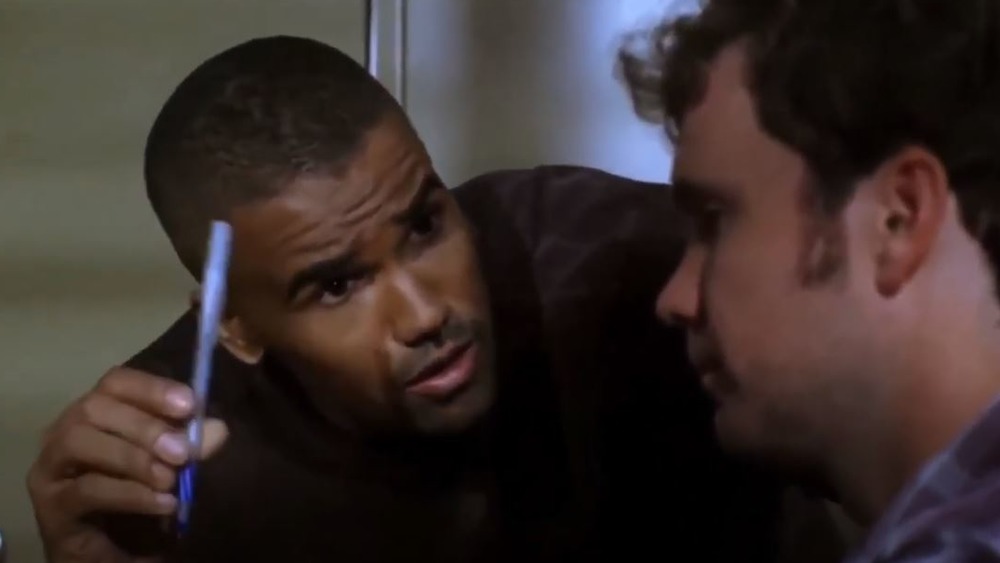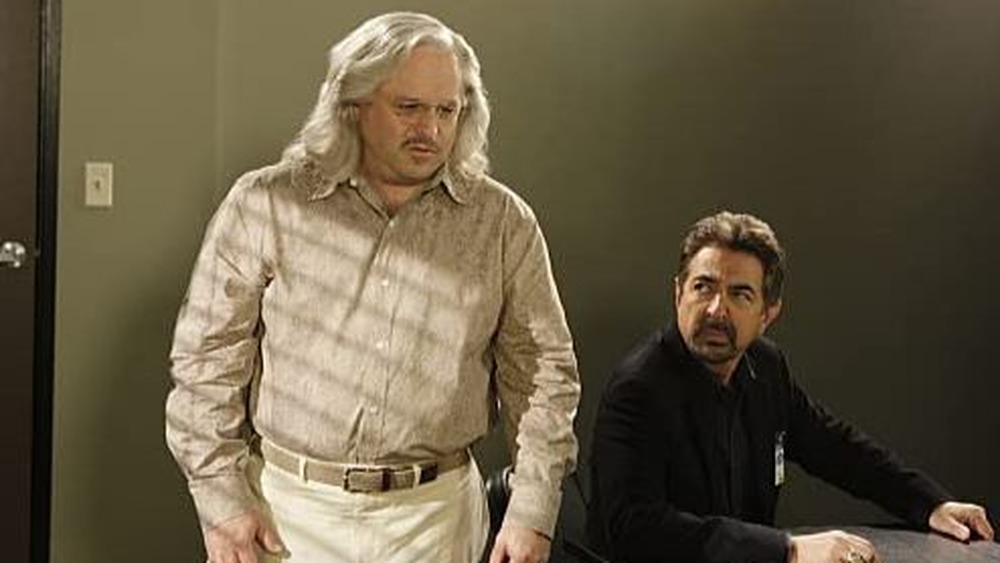Here's What Criminal Minds Gets Wrong About Interrogations
Criminal Minds came to an end after its 15th season, but the CBS crime procedural drama certainly left its mark on the annals of television history. The long and storied tale of FBI's Behavioral Analysis Unit (BAU) has featured the occasional storyline that fans hated, but Criminal Minds' eventful timeline, colorful cast of characters, and enticing portrayal of behavioral analysis all helped the show hold its allure over 324 suspense-filled episodes.
As one of the more popular and longer-running police procedurals out there, Criminal Minds has shown all sorts of investigation methods, including the art of interrogating a suspect. But how accurately has the show portrayed it? Looper reached out to former criminal prosecutor David Fleck, who looked into some of the show's interrogation scenes. While Fleck noted that Criminal Minds gets many aspects of the process right, he was also able to point out a few instances where members of the BAU play a little bit fast and loose with their interrogation techniques. Let's take a look at some of the things that Criminal Minds gets wrong about interrogations.
Threatening a suspect is a bad move from a legal standpoint
In the Criminal Minds season 2 episode, "The Boogeyman," Derek Morgan (Shemar Moore) interrogates James Charles (Sean Bridgers). Though Morgan doesn't lay a finger on Charles, his attitude is very confrontational, and he teases and provokes the man until the situation starts escalating and the suspect becomes agitated. According to Fleck, Morgan's aggression is a problem. "Confessions must be voluntary and cannot be coerced, otherwise they will be excluded from evidence," he says.
Sure, it's true that Morgan doesn't actually lay a finger on the suspect, but Fleck points out that there are many ways to be threatening. "It is possible to threaten violence without words, and even threatened violence is per se coercive. In addition, Morgan used psychological coercion. While confessions that result from psychological coercion are not automatically excluded from evidence, the judge would determine whether the psychological ploys were so coercive that the confession was involuntary and unreliable."
Another event in a similar vein takes place in the season 7 episode, "The Company," in which Morgan completely loses his cool while interrogating Malcolm Ford (Chad L. Coleman), and has an outburst during which he clearly threatens the suspect. Fleck feels that this interrogation maneuver was rather dangerous, though it did cause the suspect to slip up. "In this snippet, I thought Morgan's emotional outburst was risky but effective," he opines.
High risks and missed opportunities
One of the more enjoyable interrogation scenes on Criminal Minds happened in the season 4 episode "Masterpiece," in which Joe Mantegna's David Rossi confronts the narcissistic psychopath Henry Grace (played by Seinfeld's Jason Alexander in a glorious wig). Rossi interrogates the highly dangerous man in a closed room. In this instance, the criminal isn't restrained and falsely believes that no one's listening. As such, Grace can — and does — pull stunts like leaning close to Rossi and whispering things in his ear.
Fleck thinks the scene is great and likes the sneaky recording tactic, but points out that the interrogation is pretty risky for Rossi. "The obvious problem with this interrogation is that the Special Agent let the murder suspect get too close to him. In real life, law enforcement officers would never put themselves at risk like that."
Another Rossi interrogation – in the Season 8 episode, "Brothers Hotchner" — sees the agent sit down with Sean Hotchner (Eric Johnson). While Fleck feels that the interrogation goes decently, he does note that Rossi remains rather distant. "I would say Rossi should have tried to build a rapport with the suspect first," he says. Fleck also points out a missed opportunity to play an effective game of good cop and bad cop after Aaron Hotchner (Thomas Gibson) angrily bursts in the room.
Any TV series is going to have to take some liberties for the sake of dramatic tension, but it's nice to know that Criminal Minds at leasts stays within the bounds of reasonable reality.


